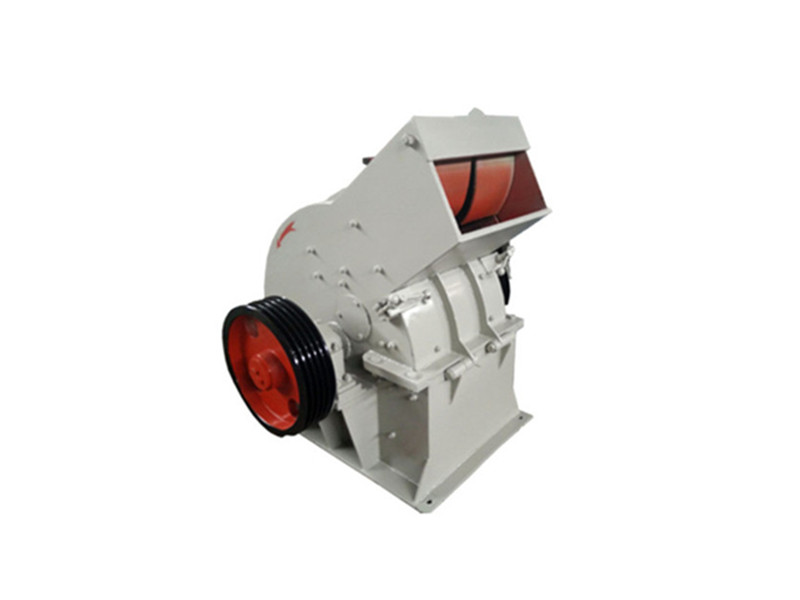Mail: htcrusher@hamachine.com
Telephone: 008618838076345
Links: YOUTUBE TWITTER FACEBOOK

In the bustling construction and mining sectors of Egypt, where infrastructure development and resource extraction are pivotal to economic growth, the role of efficient material crushing cannot be overstated. Among the arsenal of machinery designed to tackle this challenge, the hammer crusher stands out as a vital piece of equipment, especially when it comes to processing hard materials. This article delves into the significance, working principles, advantages, and applications of hammer crushers in Egypt's context.
Understanding Hammer Crushers
A hammer crusher, also known as a hammer mill, is a type of impact crusher that employs a series of hammers mounted on a rotor shaft to crush materials. These hammers swing at high speeds within a chamber, striking the incoming feed material with great force, thereby breaking it down into smaller fragments. The crushed material then exits the chamber through a screen or grate, which can be adjusted to control the final product size.
Significance in Egypt's Industrial Sector
Egypt, with its vast reserves of minerals like limestone, marble, granite, and basalt, alongside its thriving construction industry, demands robust and reliable crushing solutions. Hammer crushers have emerged as a key player due to several factors:
1. Versatility: They can handle a wide range of materials, from softer rocks to harder ones like granite and basalt, making them ideal for diverse applications across quarries and mines.
2. High Efficiency: With their ability to crush materials in one pass, hammer crushers offer higher throughput compared to some other types of crushers, enhancing productivity in operations.
3. Cost-Effectiveness: Their relatively simple design translates to lower maintenance costs and easier operation, reducing overhead expenses for businesses.
4. Size Reduction Capability: Hammer crushers can achieve significant size reduction ratios, producing finer particles necessary for further processing or direct use in construction projects.
Working Principles and Design Features
The effectiveness of a hammer crusher lies in its unique design:
- Rotor Assembly: The heart of the machine, consisting of a shaft fitted with heavy-duty hammers, rotates at high speeds under an electric motor or diesel engine. This imparts kinetic energy to the hammers, enabling them to shatter incoming materials.
- Crushing Chamber: Enclosed within a sturdy housing, the chamber contains the rotor and is lined with wear-resistant materials to minimize abrasion and extend service life.
- Screening Mechanism: A perforated screen or grate at the bottom of the chamber allows only particles smaller than a certain size to pass through, while larger pieces are retained for further crushing until they reach the desired size.
- Adjustable Settings: Most modern hammer crushers feature adjustable rotor speeds and discharge openings, providing flexibility to tailor the output according to specific requirements.
Advantages Over Other Crushers

Compared to jaw crushers, cone crushers, or gyratory crushers, hammer crushers offer distinct benefits:
- Single-Stage Crushing: Unlike jaw and cone crushers that may require multiple stages for fine crushing, hammer crushers often achieve the desired particle size in one go, simplifying the process flow.
- Less Sensitivity to Moisture: Some materials prone to sticking or clogging in other types of crushers can be effectively processed by hammer crushers due to their high-speed action and self-cleaning mechanism.
- Lower Installation Costs: With simpler foundation requirements and less complex installation procedures, hammer crushers present a more affordable initial investment.
Applications Across Industries
In Egypt, hammer crushers find extensive use across various industries:
- Construction: For producing aggregates used in concrete, asphalt, and mortar production. They are particularly useful in processing recycled concrete debris for reuse in new construction projects.
- Mining: In quarrying operations, hammer crushers help extract and size minerals such as limestone, marble, and granite for construction purposes or further processing into industrial products.
- Cement Industry: As raw materials like limestone and clay need to be finely ground before being fed into the kiln, hammer crushers play a crucial role in preparing these materials.
- Metallurgy: For crushing iron ore, coal, and other raw materials used in steelmaking processes.
Future Prospects and Innovations
As Egypt continues to invest in its infrastructure and mining sectors, the demand for advanced crushing technologies like hammer crushers is expected to rise. Manufacturers are responding with innovations such as:
- Enhanced Wear Resistance: Utilizing advanced materials and coatings for hammers and liners to prolong service life and reduce replacement frequency.
- Energy Efficiency: Developing more efficient drive systems and optimizing rotor designs to minimize energy consumption while maintaining high performance.
- Automation and Control Systems: Integrating smart sensors and automated controls to monitor and adjust operational parameters in real-time, ensuring optimal efficiency and reducing operator intervention.
In conclusion, the hammer crusher stands as a cornerstone in Egypt's quest for efficient hard material crushing. Its versatility, cost-effectiveness, and adaptability to various industrial needs make it an indispensable tool for the country's ongoing development projects. As technology advances, so too will the capabilities of these machines, further solidifying their position as the key equipment for hard material crushing in Egypt's dynamic industrial landscape.
Copyright © hengtong machinery Privacy Policy